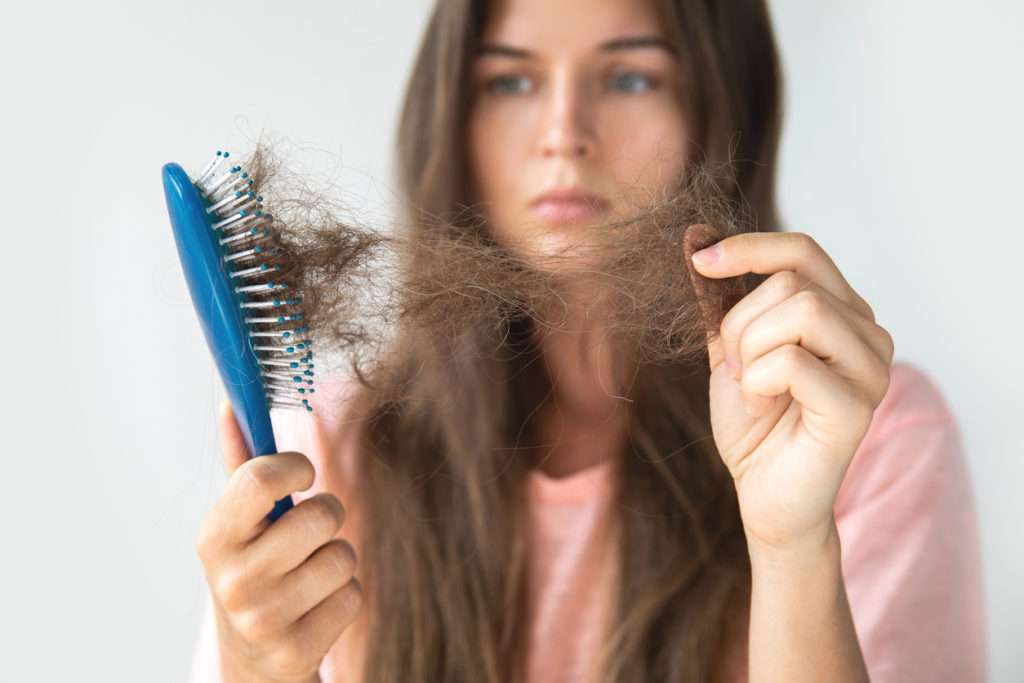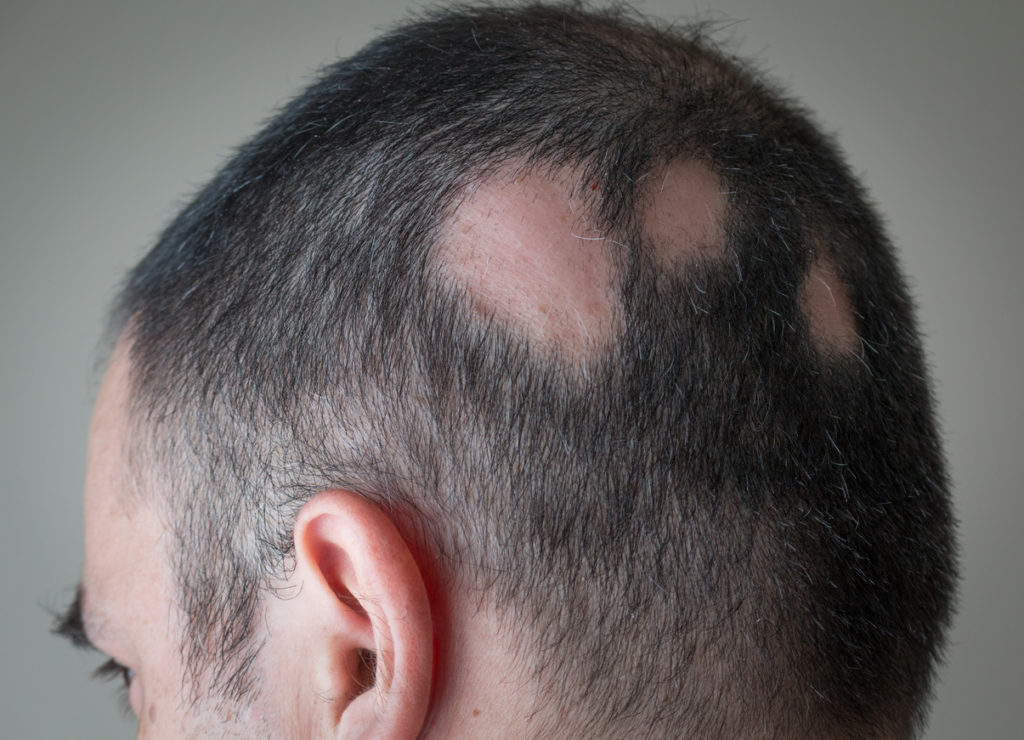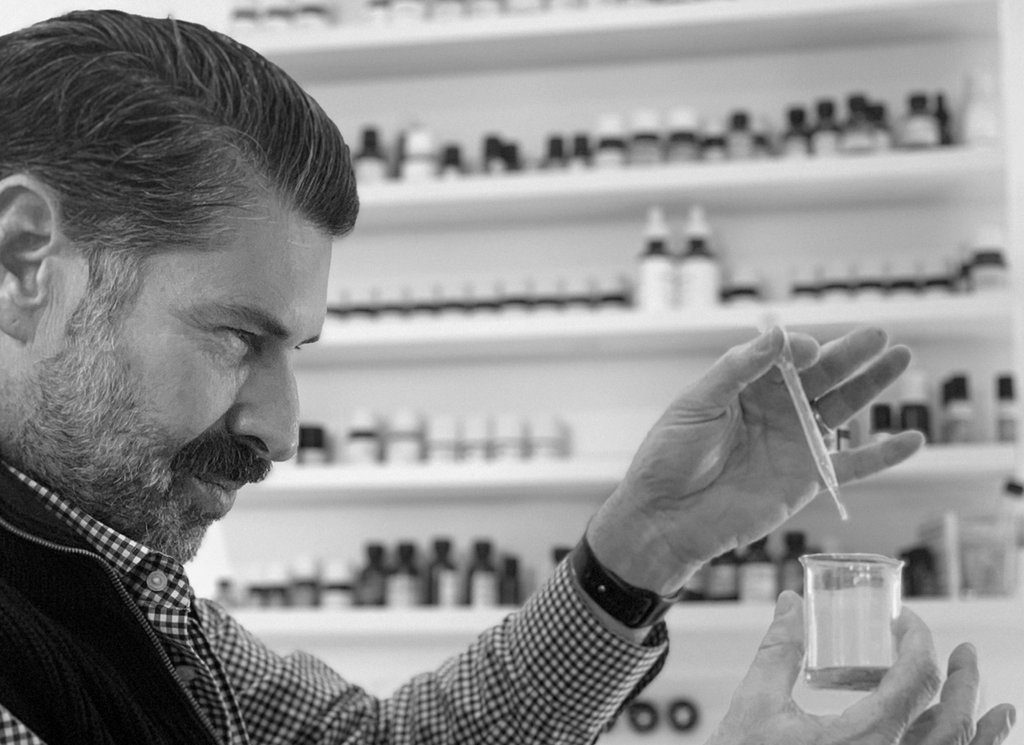Are You Dealing with Hair Loss? Top Doctors Explain The Reasons and The Remedies in our Two-Part Series
If you’ve noticed more hair in your brush or on your pillowcase lately, you’re not alone. Stress does a number on your hormones, and 2020 has been one of the most difficult years on record. Genetics, health conditions, and even hairstyle choices can also exacerbate the problem.

Since hair grows in stages, some hair loss is natural. Most people shed 50–100 hairs per day without noticing it. True hair loss, on the other hand, isn’t something many of us want to talk about, but that’s precisely what we should be doing, so we can get to the root of the problem and hopefully stop it from getting worse.
Analyze Your Predicament
Before taking any corrective measures, jot down the details related to your hair loss.
- Is your hair getting thinner on top?
- Is your part getting wider?
- Does your hairline seem further away from your forehead than in years past?
Look for circular patterns, itchy spots, or signs of oozing, too. Each type of hair loss has a different cause, and you’ll be better prepared to discuss the situation with your doctor if you take stock of symptoms in advance.

You Can’t Change Your Genes
Some things, you just can’t escape. If the men or women in your family had thinning hair, a receding hairline, or bald spots, you may be experiencing the same thing. When heredity is to blame, your dermatologist will refer to this as androgenic alopecia or pattern baldness. For women, both thyroid problems and pregnancy disrupt the hormonal balance and often result in alopecia areata. Even medications prescribed to treat high blood pressure, arthritis, cancer, heart problems, and depression can affect your hair.
September also happens to be Alopecia Awareness Month. Alopecia Areata, as mentioned above, is an autoimmune disorder that causes sudden hair loss and can reportedly be triggered by various reasons including stress, traumatic life events, and stress. The National Alopecia Areata Foundation reports that as many as 6.8 million people are affected in the United States alone.
The Lifestyle Culprit You Least Suspect
One common practice that causes hair loss will surprise you. If you opt for a high ponytail or frequently braid your hair, the tension that keeps the style taut may be pulling your hair out prematurely or forcing your hairline to recede. Friction and tight hairstyles cause traction alopecia, a condition that occurs when the hair follicles are strained and strands detach. Hair accessories, headbands, and hair extensions all put undue stress on your roots and cause hair loss. Add in a myriad of salon procedures –like permanents, hot oil, or relaxing treatments – and you may just discover your “do’s” downfall.

Men and Women Experience Hair Loss Differently
If you think finding the perfect mate is difficult, try pinpointing a single cause that explains your hair loss. Philip B. , one of Hollywood’s most in-demand haircare specialists, explains that women’s connective tissue is more delicate than a man’s and “becomes even thinner and more fragile” as they age. Although men and women are equally prone to androgenic alopecia, the onset of thinning hair in women generally coincides with menopause.
Give Your Scalp A Little Love
If you’re looking to DIY before consulting with a dermatologist, there are several options available. In a recent article, we covered scalp care, but you may not know the role blood circulation plays in keeping your scalp healthy. Circulation decreases as we age, but scalp massage can improve it, plus it feels great, too. Combining daily massage with a stimulating shampoo, like Philip B.’s Peppermint & Avocado, “normalizes cell turnover” thanks in part to medical-grade peppermint oil, which cleans, relaxes, and invigorates the scalp. “By lifting away heavy scalp oils that block follicles,” Philip says, “the shampoo also preps the scalp for topical treatments, so they can work more effectively.”
Haircare Products And Supplements Can Help

Oils rich in behenic acid, like True Moringa’s Simplicity Pure Moringa Face, Hair, Body Oil, increase scalp moisture and promote healthy hair growth. Thickening shampoos and conditioners, like those from Grow Gorgeous, Christophe Robin, and Viviscal Professional, may also get your locks looking lush and lustrous over time.
And, if you’re interested in improving your hair from the inside out, Board Certified Facial Plastic Surgeon Dr. Ben Talei recommends Nutrafol, which is “a cocktail of multivitamins, high dose biotin, and a proprietary blend” that improves hair growth. Celebrity hair transplant surgeon Dr. Craig Ziering of Ziering Medical also recommends Viviscal’s supplements to both male and female patients.
If you need further guidance and want to do something about your less-than-lustrous locks – besides donning a hat or radically altering your hairstyle – stay tuned for our follow-up article where top hair restoration experts share their knowledge and recommendations.
Loading...